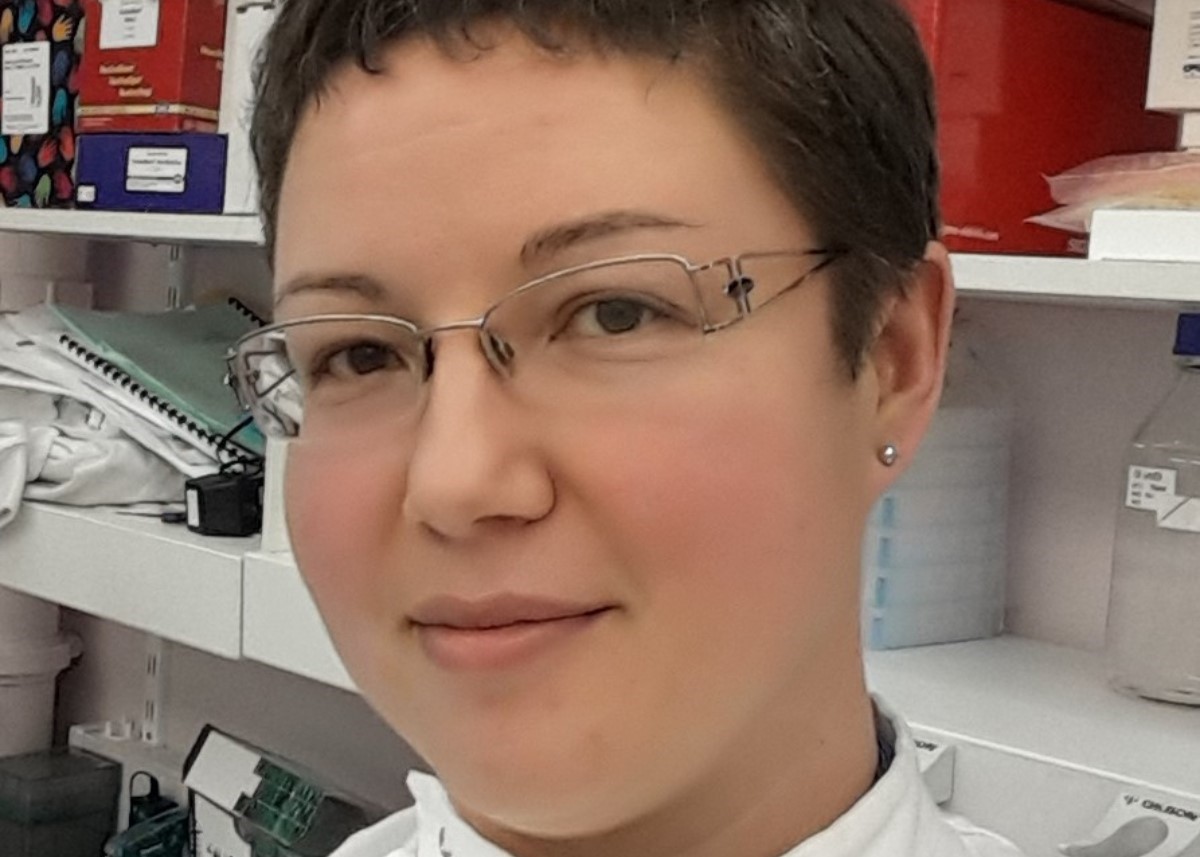We hear from Dr Anna Git, a Breast Cancer Now scientist based at the University of Cambridge. She shares how her research has been put on hold after her lab closed due to COVID-19.
Dr Anna Git is based at the University of Cambridge. She is studying oestrogen receptor (ER) positive breast cancer. Anna wants to understand if molecules called non-coding RNAs can reveal new weaknesses in ER positive breast cancer and help better treat the disease in future.

What is your research about?
There are two types of RNA molecules in cells: the coding RNAs, which contain the blueprint for how to make proteins, and the non-coding RNAs. The non-coding RNAs can have all sorts of different roles. Most of the research in breast cancer so far has focused on coding RNAs, but I am studying what effect the hormone oestrogen has on non-coding RNAs. Non-coding RNAs are more challenging to study and understand.
While I am a fundamental researcher at heart, I always wanted to have an impact on people’s lives. I want to better understand the effect of oestrogen in breast cancer so that we can figure out the mechanisms that lead to cancer’s resistance to drugs. Although the non-coding RNAs themselves can’t be easily targeted with drugs, understanding their roles might shed light on other weaknesses breast cancer cells have.
How has your research been affected by the COVID-19 pandemic?
My project was due to end at the end of April, so due to the pandemic the key phase of finishing the project was put on hold.
Working from home is a stop-gap measure for some aspects of our research, but it’s no substitute for the time spent in the lab. The interaction with colleagues and students is a very important part of my thinking processes. I miss the bouncing of ideas and the constant stream of constructive critique.
I have never worked from home before. And I found it very hard trying to focus on writing a research paper while juggling homeschooling and the never-ending cooking for a family with teenagers. But now I am on furlough.
Our return to the lab will be gradual and staggered. The University is currently busy prioritising researchers for return and setting up guidelines for shift work and distancing. Much of it is still unknown, but I think it will take time to get the project up and running at normal capacity.
What are you doing to make sure your research doesn’t lose the momentum while labs remain closed?
As soon as lockdown became a possibility, we launched a large number of experiments to complete before the lockdown (I was in the lab until 1am every weekend!). So during the first few weeks of the lockdown, before furlough, I was busy working from home – analysing data and putting a research paper together.
Breast Cancer Now has given me additional time to finish the project, which is immensely helpful. It’s given us the confidence that we will be able to complete the few remaining experiments when we’re back in the lab, so that under no circumstances will we publish anything short of the most rigorous science. I hope we will be able to catch up with all our work in the lab in around three months.
What could we learn from the COVID-19 crisis and bring to breast cancer research?
During the pandemic, we saw a lot of national and international collaboration and sharing of preliminary research related to COVID-19. These are the beacons of light leading us out of the pandemic. But there’s a second lesson there too. We need to take caution in trusting hastily published research.
Do you have a message for Breast Cancer Now supporters?
In the UK, there has been a really significant effort to provide the funding, equipment and resources to fight the COVID-19 pandemic. But it is vitally important that breast cancer research remains active too. And I’d like to thank all Breast Cancer Now supporters for helping to ensure we can keep momentum.
We need your support, now more than ever, so that researchers like Anna can make up for lost time and continue their life-changing work.